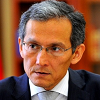After Afghanistan Falls
BISHKEK – On July 2, the US military handed control of the vast Bagram Air Base to the Afghan government. US troops and their NATO allies are now on track to leave Afghanistan by mid-July, well ahead of US President Joe Biden’s September 11, 2021, withdrawal deadline.
According to a new analysis by researchers at Brown University, America’s two-decade war in Afghanistan cost it nearly $2.3 trillion. Now, Afghanistan’s neighbors – Pakistan, Iran, China, India, and the Central Asian countries – are wondering just how much it will cost them to maintain security after the United States is gone.
In late June, the US intelligence community concluded that the Afghan government could collapse within six months of the US withdrawal – a stark downward revision of its earlier, more optimistic assessment. As the Taliban has swept through northern Afghanistan, capturing dozens of districts and major cities, Afghan security forces have often surrendered without a fight. According to a June report from the United Nations Afghanistan Sanctions Monitoring Team, the Taliban now exercises direct control over more than half of the country’s regional administrative centers, and controls up to 70% of the territory outside urban areas.
The tremors from these Taliban victories are already being felt across the region. Fierce fighting has occurred a mere four hours from Tajikistan’s capital, Dushanbe. On June 20, Taliban militants operating in northern Afghanistan surrounded government forces in Kunduz, the country’s sixth-largest city (population 300,000). Then, on June 22, the Taliban captured the Afghan-Tajik border outpost of Sher Khan Bandar without a fight.
Meanwhile, Tajikistan’s border service reported that 134 Afghan servicemen had received asylum at the crossing. Another 53 Afghan border troops and local militiamen retreated from a Taliban onslaught in Afghanistan’s Shortepa district by crossing into Uzbekistan; and on July 5, more than 1,000 Afghan soldiers reportedly fled across the border from Badakhshan Province into Tajikistan.
A complete Taliban takeover of the Amu Darya and Panj Rivers dividing Afghanistan from Uzbekistan and Tajikistan will likely occur within weeks. Since this outcome would allow the Taliban to control Afghanistan’s international borders along this front, the risk of large refugee flows from Afghanistan into Central Asia, and then on to Russia and Europe, has sharply increased.
After clandestinely supporting the Taliban as a means to undermine the US war effort, Russia now fears broader destabilization in Central Asia and beyond. In response to recent developments in Afghanistan, Russian Defense Minister Sergei Shoigu says that, “By the end of this year, the command of the Central Military District will have to re-equip two aviation regiments with modernized Su-34M fighter-bombers and MiG-31BM fighter-interceptors.” These reinforcements of Russian airpower in the region “will significantly increase the district’s capabilities to engage the enemy with fire and combat cruise missiles in the Central Asian strategic direction.”
Similarly, after having made nice with the Taliban, China also now fears the greater regional instability that the US withdrawal may incite. In addition to disrupting Chinese President Xi Jinping’s Eurasia-spanning Belt and Road Initiative, a revitalized Taliban could re-energize the Islamist extremist threat in China’s western Xinjiang province.
The prospect that Afghanistan will become a source of deepening poverty, mass migration, and instability is quickly becoming everyone’s problem. But it is Central Asian governments that will be on the front lines. Still, many regional officials remain surprisingly optimistic. Following a recent visit to the US to discuss Afghanistan and regional security, the Uzbek foreign minister, Abdulaziz Kamilov, gave an extensive interview in which he argued that only Afghans, including the Taliban, can resolve Afghanistan’s problems.
“We have some optimism,” he explained, “Because the situation has changed. First, the two sides began direct contact for the first time in 40 years. The Taliban also want direct negotiations to reach a peaceful agreement.” While stressing that he is no defender of the Taliban, Kamilov pointed to an official publication on the group’s website where it claims to want to build an independent, sovereign Islamic Emirate of Afghanistan without any outside interference. In this new country, the rights of women, girls, and minorities would supposedly be guaranteed.
It is hard to believe that a seasoned diplomat like Kamilov would fall for such honeyed words. Yet, in also arguing that Afghanistan should be more deeply integrated into the Central Asian economy, he is on sound strategic footing. Even the Taliban would be attracted to the idea of a renewed “Greater Central Asia” that could recreate some of the economic dynamism of the glory years of the Great Silk Road (1100-1600 AD).
With China determined to deepen its trade, investment, and infrastructure ties across Eurasia, this vision has a chance of becoming reality. But first, peace must prevail, above all within Afghanistan.
Djoomart Otorbaev is a former prime minister of Kyrgyzstan.
Copyright: Project Syndicate, 2021.
www.project-syndicate.org
This article is brought to you by Project Syndicate that is a not for profit organization.
Project Syndicate brings original, engaging, and thought-provoking commentaries by esteemed leaders and thinkers from around the world to readers everywhere. By offering incisive perspectives on our changing world from those who are shaping its economics, politics, science, and culture, Project Syndicate has created an unrivalled venue for informed public debate. Please see: www.project-syndicate.org.
Should you want to support Project Syndicate you can do it by using the PayPal icon below. Your donation is paid to Project Syndicate in full after PayPal has deducted its transaction fee. Facts & Arts neither receives information about your donation nor a commission.

